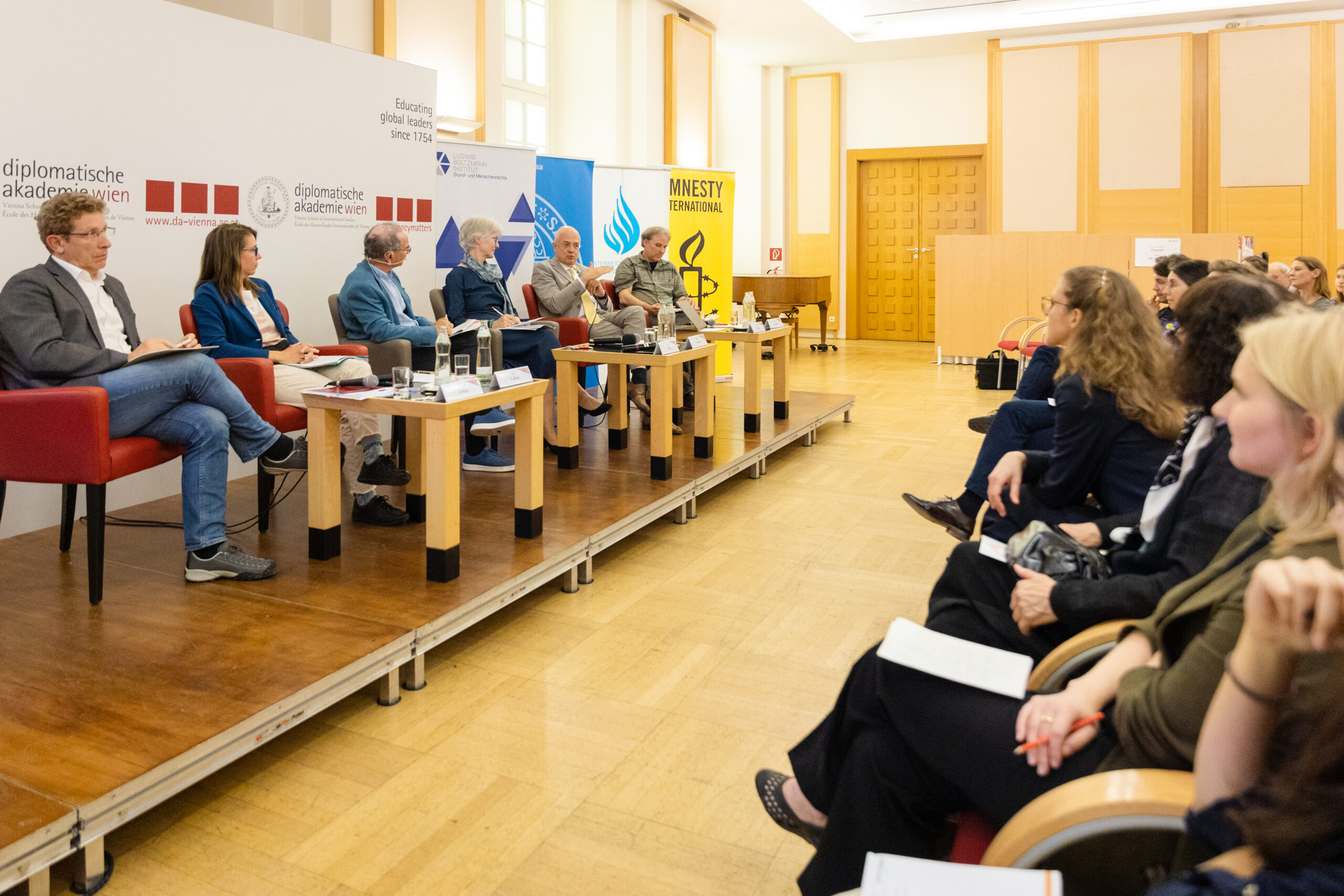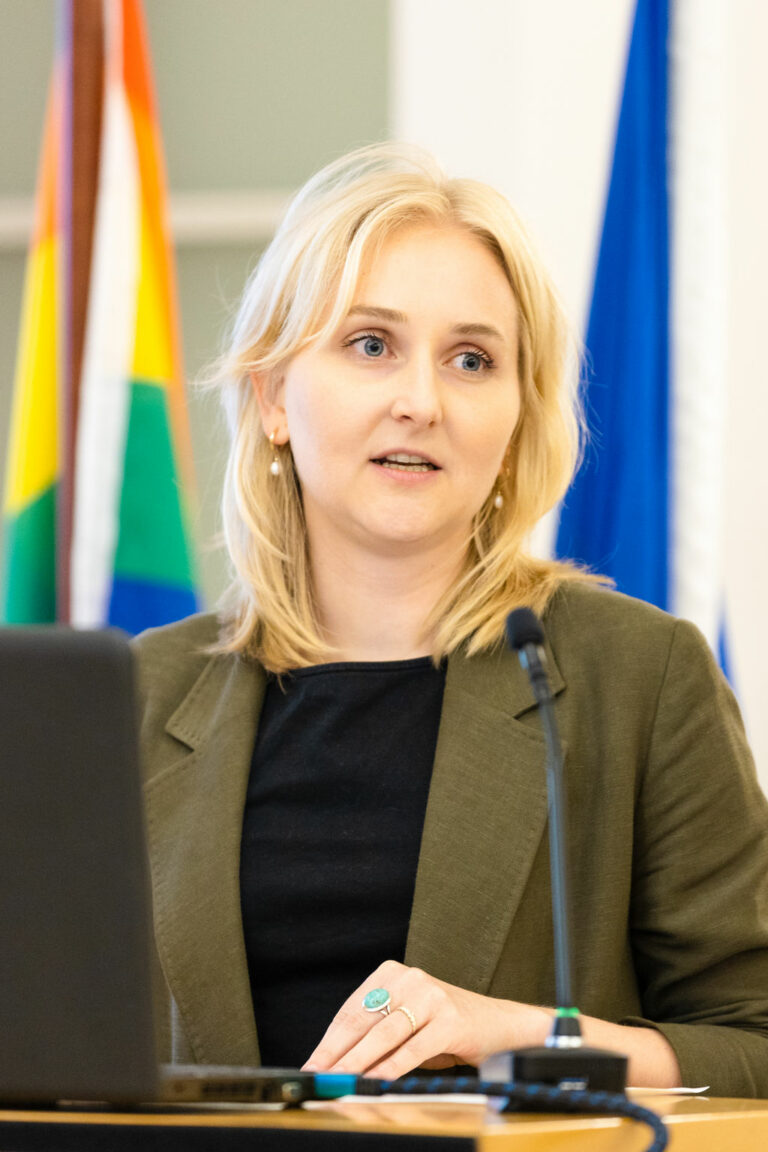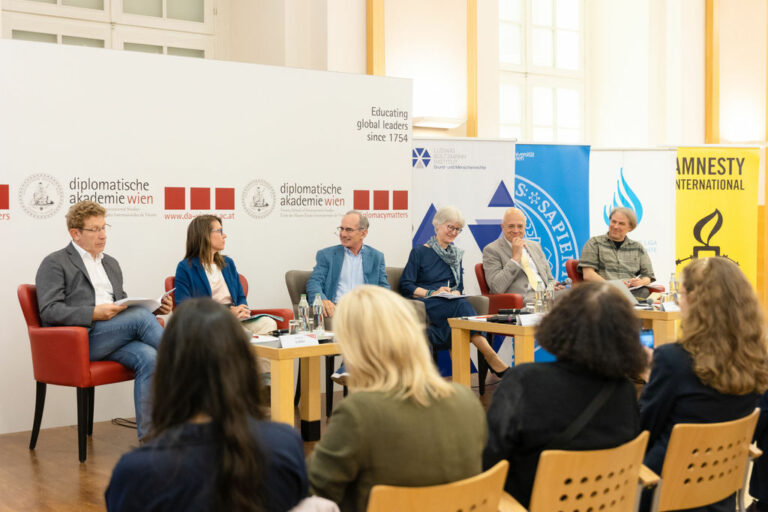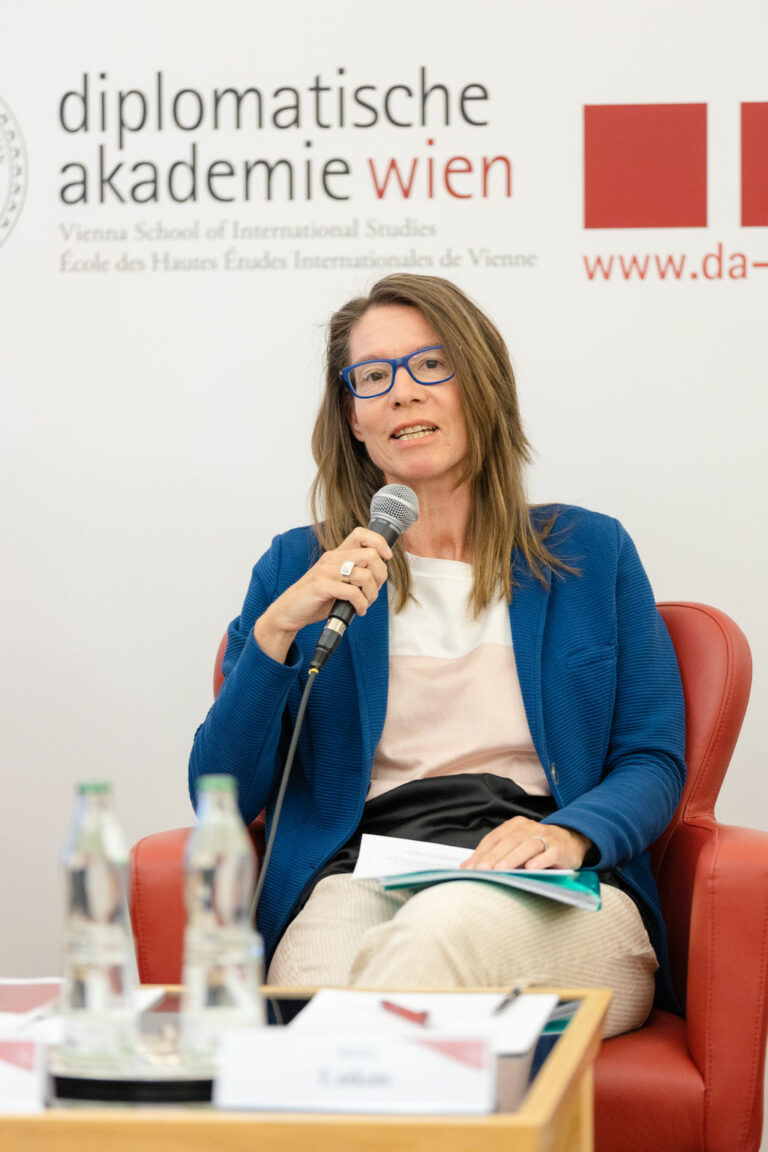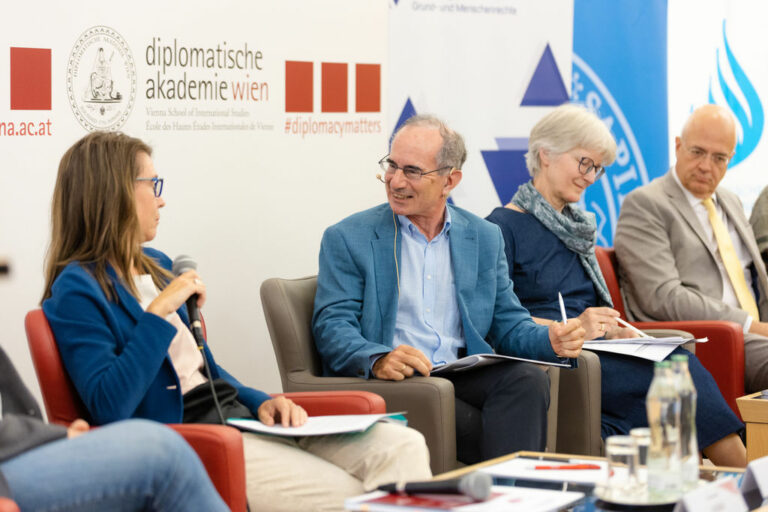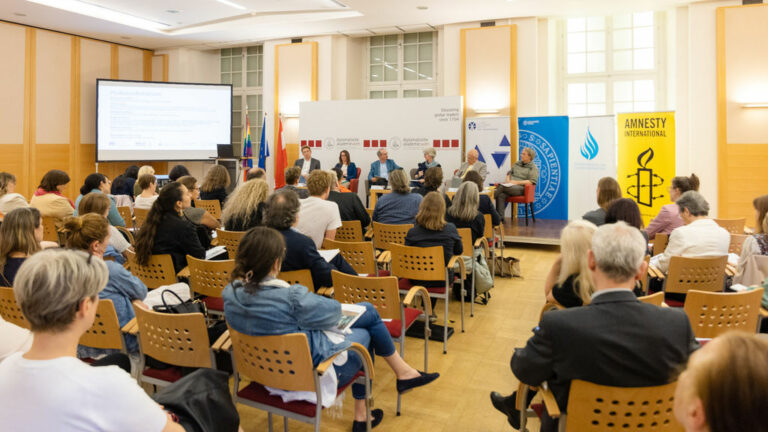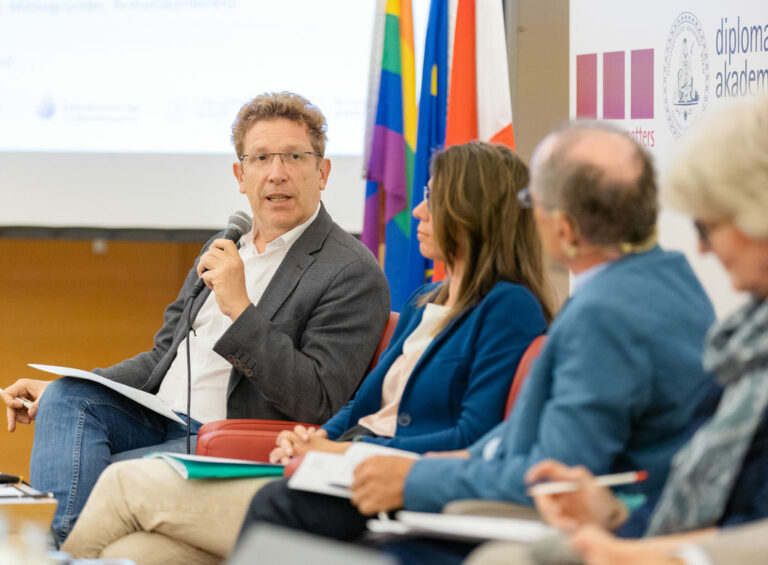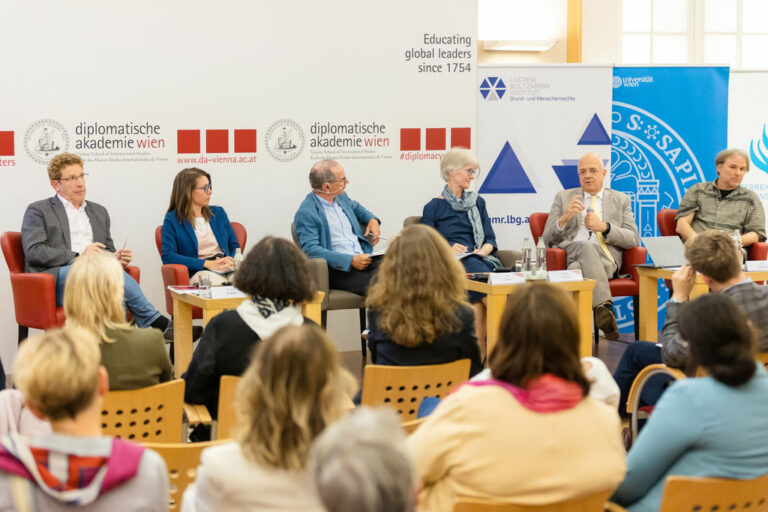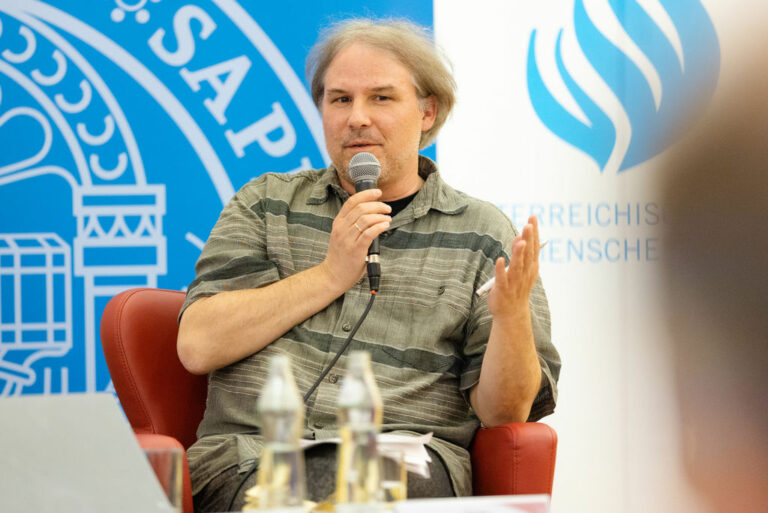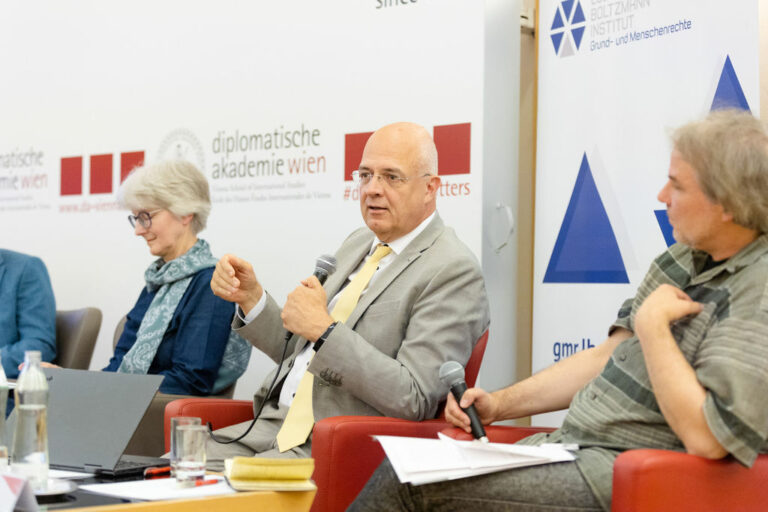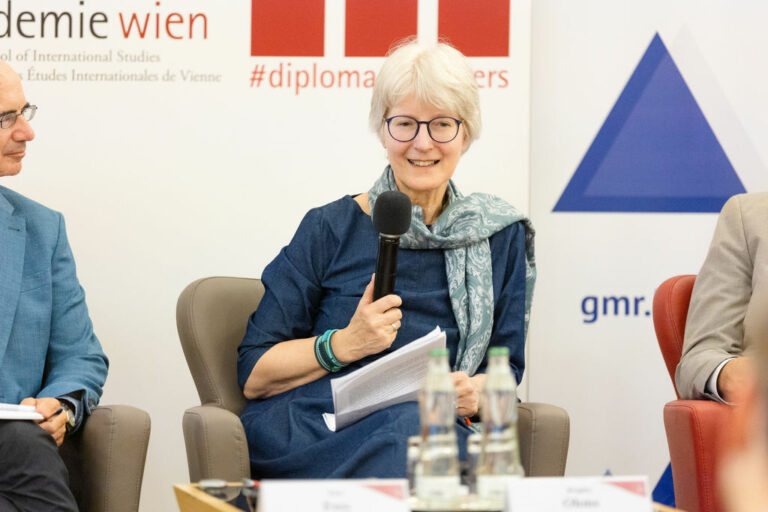Social rights: Do they belong in the constitution?
On Tuesday, 13 June 2023, a Human Rights Talk was dedicated to the importance of social rights. At the Diplomatic Academy of Vienna, high-ranking experts discussed the concrete consequences of enshrining social rights in the constitution.
Social (human) rights include the rights to work, health and housing. Although they are enshrined in international law in the European Social Charter, they still do not enjoy the same status as civil and political rights. Only a few European countries have fully ratified the Charter so far. Austria, too, has not yet signed about a quarter of the provisions it contains. Unlike many other countries, Austria has not yet incorporated social rights into its constitution.
At the invitation of the Ludwig Boltzmann Institute of Fundamental and Human Rights (LBI-GMR), Amnesty International Austria, the Austrian League for Human Rights and the University of Vienna, a high-level panel discussed the background on Tuesday, 13 June 2023 at the Diplomatic Academy of Vienna.
In her opening remarks, Teresa Hatzl (Amnesty International Austria) pointed out the great importance of social human rights in all our daily lives: from food to education to housing.
Karin Lukas (Central European University) emphasised that although Austria is understood as a social state, this is not constitutionally secured. A simple majority in the National Council – in some matters also in a provincial parliament – can decide on deep cuts in the labour and social system without coming up against clear constitutional limits. Furthermore, it is an important signal for those affected when social rights are elevated to constitutional rank and thus become higher objects of protection.
Brigitte Ohms (Federal Chancellery of the Republic of Austria) summed up the reasons, why the social rights are not constitutionally secured: “It was not possible to reach an agreement”. She referred to the Austria Convention, which had discussed proposals for a fundamental reform of the state and the constitution between 2003 and 2005.
Bernhard Achitz (Ombudsman for Social Affairs, Care and Health) was convinced that the Constitution should reflect the basic socio-political consensus. “I would sleep better if the Constitutional Court did not always have to stand on its head,” Achitz continued. And: “On the side of civil rights, we have a constitutional guardrail. On the side of social rights it is missing.”
Wolfgang Mazal (University of Vienna) was critical of a constitutional anchoring, as the determination of the level of social benefits was a matter for parliament. However, with regard to fundamental rights to safeguard human dignity, the existing potentials should be used even better, Mazal continued.
Martin Schenk (Diakonie Austria; Poverty Conference) pointed out that Austria was doing very well in combating child poverty in an EU comparison. However, the situation was different with regard to the social advancement of children from families at risk of poverty. “Poverty is a lack of goods and a lack of opportunities,” Schenk said.
Eric Frey (Der Standard) hosted the evening.
The Human Rights Talks see themselves as a platform for social discourse on current topics with human rights relevance. The events present top-class speakers to the interested public and analyse human rights challenges and socio-political trends in a differentiated manner and with professional expertise, but at the same time in an accessible way and with practical relevance. An important component of the format is the interactive audience discussion in addition to contentual contributions.
For programme details please refer to the download area.
